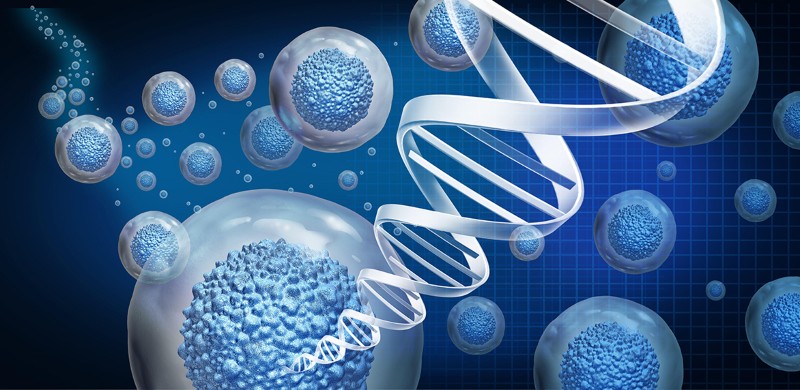Can NMN Improve Fertility?
Science • May 10, 2022 • 6min read
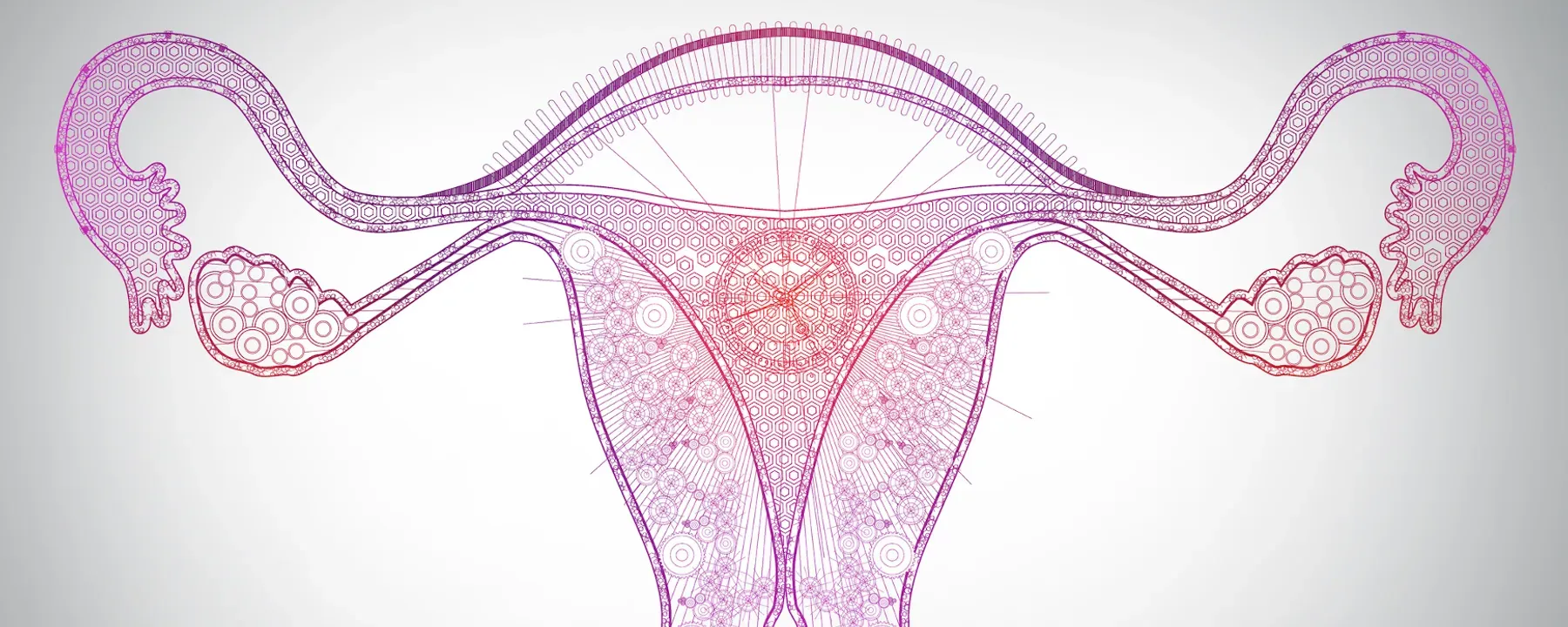
Introduction
Women only have a limited amount of “oocytes” or egg cells.
At birth, the ovaries contain all the eggs (around 1 to 2 million) women will ever have throughout their life. This amount is steadily decreasing, and at puberty, only 300.000 to 400.000 eggs are left.
The peak fertility for a female to get pregnant is around the age of 20s to early 30s. Yet, after 35+, the number of eggs starts to decline rapidly, significantly increasing the risk of probable infertility. Hence, menopause happens once there is no single egg cell left.
There has been considerable excitement recently regarding the NMN molecule (nicotinamide mononucleotide). During the last 20 years, NMN got the spotlight for its anti-aging properties. Moreover, scientists discovered that NMN supplementation can help with fertility and even reverse the effects of aging on egg cells.
Can NMN Improve Fertility?
Research in mice has provided solid evidence that NMN enhances fertility even during the process of aging.
NMN enhances fertility by raising the NAD+ (nicotinamide adenine dinucleotide) levels in eggs. NMN supplementation improves egg maturation, restores its quality, and supports fertilization. Elevation of NAD+ levels through NMN supplementation provides a practical and non-invasive technique to restore and preserve female fertility during aging.
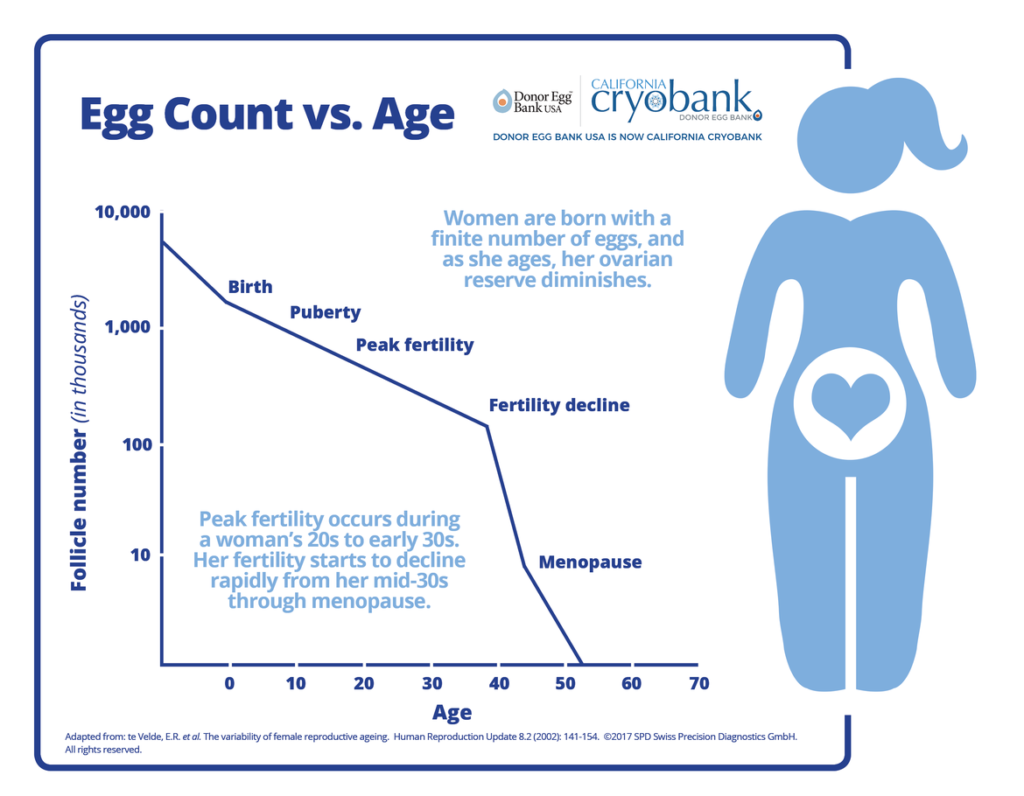
Aging And Infertility
The incidence of infertility worldwide is increasing due to egg and sperm quality decline over time. A lot of women choose to get married later and get pregnant after 35+. Yet, when the woman passes the age of 35+, getting pregnant may become harder even if couples try to conceive for more than a year.
Recent studies in mammals suggest that there may be a method to reduce some of the impacts of female reproductive aging and boost fertility as we approach 40 and beyond.
According to the Centers for Disease Control and Prevention (CDC), around 19% of women in their reproductive years in the United States face difficulty trying to conceive or sustain a pregnancy.
According to the World Health Organization (WHO), around 48 million couples and 186 million people across the globe are not able to conceive. And unexplained infertility is still quite a common diagnosis.
Keeping in mind the harsh statistics, it is no surprise that couples are seeking ways to boost their fertility. The growth in infertility rates is not just due to the increasing age. But also because of lifestyle patterns, poor diet, and low sperm quality. Also malfunction or disorders in ovaries, fallopian tubes, and uterus. All of these issues may lead to possible reproductive difficulties.
♥ SPECIAL OFFER: Free fertility tracker that helps you collect the data you need!
In addition to the above-discussed, these are the other factors that affect fertility
- Age
- Weight
- Cigarette Smoking
- Pregnancy history e.g. miscarriage
- Endometriosis
- Hypothyroidism
- Polycystic ovarian syndrome (PCOS)
- Hormone imbalance
- The length of time of trying to conceive
- Other underlying medical conditions
How Is NAD+ Related To Fertility?
NAD+ directly improves egg quality to support female fertility.
NAD+ is a metabolite present throughout the body that plays a crucial role in cellular metabolism and activities such as DNA repair, autophagy, cell survival, and immunity. NAD+ levels decrease with age and this drop is linked to diseases such as cardiovascular disease, dementia, and insulin resistance leading to obesity and diabetes.
It has also been shown that NAD+ levels affect infertility, as shown in the decreased levels of NAD+ in aging eggs. The fascinating finding of NMN was that those aged mice that received it were able to increase birth rates and even reduced the time to pregnancy more.
The egg quality declines relatively early, making it increasingly difficult to get pregnant. If NAD+ levels are maintained, there may be an improved chance of getting pregnant naturally and through IVF (In Vitro Fertilization). NAD+ has also been linked to egg maturation by regulating cellular components, and NAD+ is required to prevent the egg from losing too much of its building blocks.
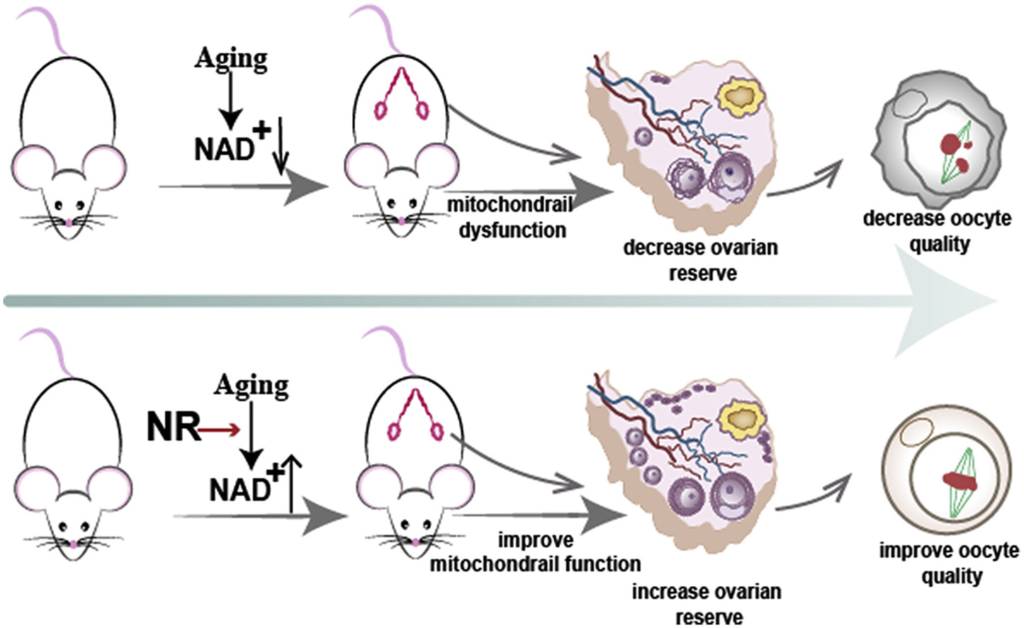
Boosting NAD+ levels results in improved egg quality. Image source
How Do NMN Supplements Enhance Fertility?
According to researchers, taking NMN improves energy levels, metabolic health, and fertility.
With increased NAD+ amounts inside the eggs, the integrity of the DNA structure is preserved, and egg maturation properly happens. Intact DNA structure is very crucial to cells and in the context of reproductive health, abnormal DNA structures in eggs can result in infertility, miscarriages, or birth abnormalities.
NMN supplements can also improve the capacity of sperms to adhere to eggs, increasing the chances of successful fertilization.
Another piece of evidence revealed that even old mice that were given NMN supplementation restored the egg cell quality, the ovulation rate improved, and the quality of blastocyst (the clumps of cells that will become the embryo, and then fetus) increased.
Further findings uncovered that boosting the NAD+ levels reverses the aging of ovaries resulting in healthier eggs due to improved functions of the energy production machinery, the mitochondria. Thus supporting the cellular functions and rigor of the egg cell.
When the scientists looked into the microscope to check what happened to the egg cells of aged mice, they found exciting results. The egg cells became healthier and ameliorated the defects caused by aging.
It shows that NMN supplementation restores the egg quality comparable to healthy or young mice, as opposed to the egg cells of other aged mice, as shown in the figure below.
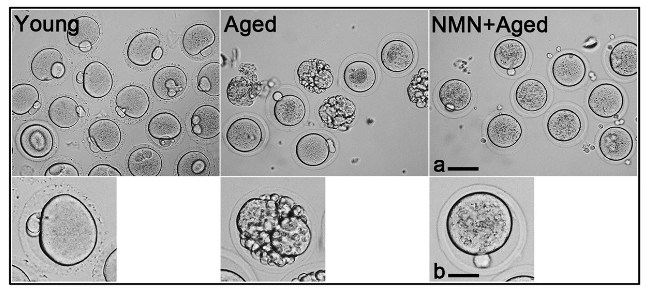
Therefore, NMN is a very promising solution for enhancing fertility by boosting egg quality.
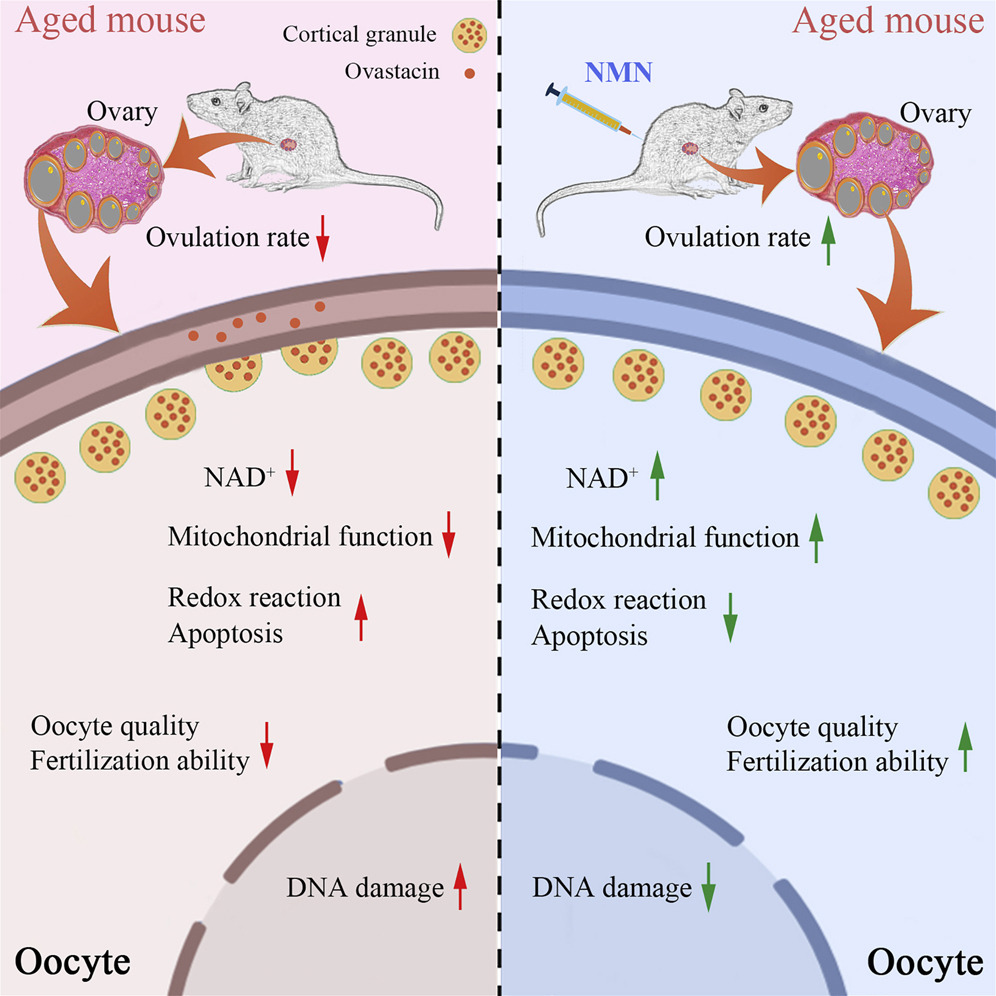
The overall effects of NMN Supplementation on aged mouse fertility versus without supplementation. Image source
Closing Remarks
Overall, all the research evidence points out that depleted NAD+ levels are a major culprit of age-related infertility. It may trigger cellular defects in egg cells, pregnancy loss, and cause a decreased ovulation rate, quality of embryo formation, and live births. On the other hand, NMN can reverse these effects to improve fertility in women.
Instead of intrusive and expensive procedures, NMN supplementation is a non-invasive, low-risk, and natural way to boost fertility and increase the quality of egg cells through aging.
If you are – or you know anyone who is – experiencing any difficulties conceiving, buy a liposomal NMN supplement optimized for more effective and bioavailable delivery to the bloodstream.
Even with a limited number of egg cells, NMN supplementation can break the limits on unhealthily aged eggs to replenish, restore, and reverse their state to finally achieve pregnancy.


